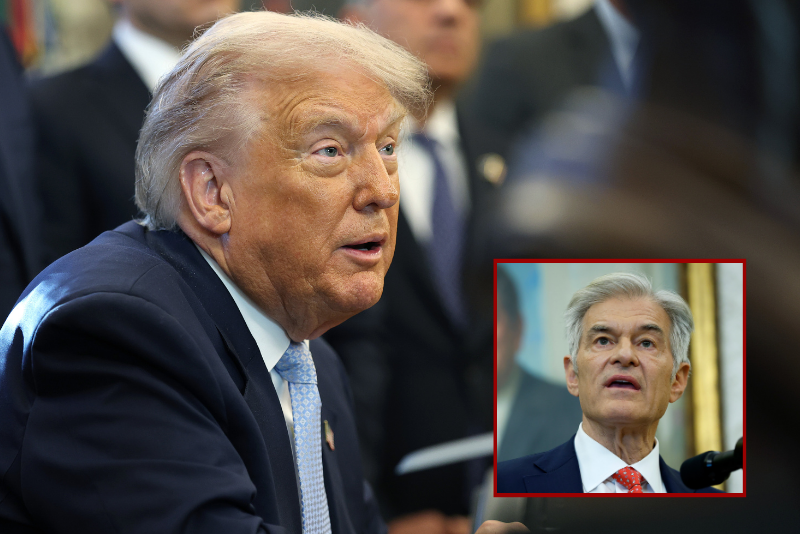
OAN Staff Brooke Mallory
2:27 PM – Monday, November 17, 2025
President Donald Trump revealed that he is personally negotiating with Democrats on a dramatic overhaul of how the federal government helps millions of Americans pay for health insurance.
“I’ve had personal talks with some Democrats,” Trump told reporters in West Palm Beach on Sunday before returning to Washington, D.C., though he did not mention any names. Nonetheless, the 47th president did emphasize that he has spoken to a number of Democrats “about paying large amounts of dollars back to the people.”
“The insurance companies are making a fortune,” he later added. “Their stock is up over a thousand percent over a short period of time. They are taking in hundreds of billions of dollars, and they’re not really putting it back, certainly like they should.”
The proposal, an idea the president first floated on Truth Social during the recent government shutdown, would purportedly redirect roughly $100 billion a year in enhanced Affordable Care Act premium subsidies — set to expire December 31st — into direct payments or deposits into health savings accounts that Americans could use to buy coverage of their choice.
The idea has quickly gained traction among Republicans searching for a way to extend relief to consumers without what many in the party call a “bailout” for insurers, and House Ways and Means Republicans are already circulating draft legislation, according to sources.
White House officials described the talks as preliminary but confirmed that Centers for Medicare & Medicaid Services Administrator Mehmet Oz and National Economic Council Director Kevin Hassett are actively modeling how such a system could work.
The stakes are high. Without congressional action, the enhanced subsidies that have capped premiums for more than 24 million marketplace enrollees will lapse at year’s end, potentially causing average premium increases of 50%–100% in 2026, according to the Congressional Budget Office.
Additionally, the shutdown that ended last week merely delayed the battle until December. That’s when the Senate is expected to consider a standalone bill to extend the Obamacare subsidies, as part of a compromise brokered by retiring Sen. Jeanne Shaheen (D-N.H.) and a small bipartisan group of senators.
Since the measure will almost certainly need 60 votes to clear a filibuster, both parties retain significant leverage in the negotiations.
Dr. Mehmet Oz, the head of the Centers for Medicare & Medicaid Services (CMS), further elaborated on what such a plan could entail on Sunday, emphasizing better consumer choice, lower drug costs and expanded access for small business owners.
“People will decide which doctors they want to keep. They’ll pay for the programs they think are most valuable to them,” he told Fox News‘ Peter Doocy. “We can save enough money in the ACA as it’s currently structured if we adjust where the money’s invested and drive prices down… to actually give people some money back, and we want that.”
Health policy experts offered mixed assessments. Supporters say direct payments could increase consumer choice and pressure insurers to lower rates, but some critics warn that it could destabilize the individual market by encouraging healthier people to drop comprehensive coverage, driving up costs for those who remain.
When Congress returns from Thanksgiving recess, the coming weeks are likely to feature intense closed-door negotiations over whether Americans will keep their current subsidies — or receive a check from the government instead.
The White House has not released details on which Democrats the president has spoken with or when a formal proposal might be sent to Capitol Hill.
Stay informed! Receive breaking news alerts directly to your inbox for free. Subscribe here. https://www.oann.com/alerts
What do YOU think? Click here to jump to the comments!
Sponsored Content Below

